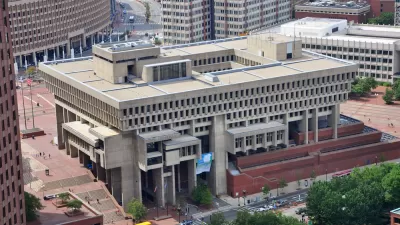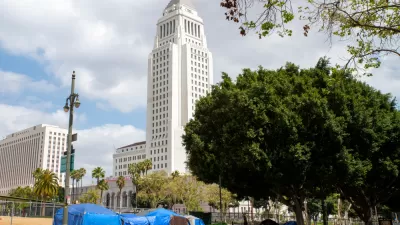The Boston Zoning Code is one of the first in the nation to Affirmatively Furthering Fair Housing.

Back in December, Boston took steps to become the first large city in the nation to include Affirmatively Furthering Fair Housing (AFFH) requirements in its zoning code. The news broke about the city's historic action after a vote by the City Council and an announcement of support by Mayor Martin J. Walsh.
According to the press release from Mayor Walsh's office, the new zoning amendment "will require developers in Boston to take substantial steps to stem displacement and provide further access to housing to those historically discriminated against."
"Boston's draft AFFH identifies over 100 actions under 14 goals across city agencies, including amending the Boston Zoning Code to affirmatively further fair housing," adds the press release. Moreover, the approved amendment to the Boston Zoning Code requires proposed development projects and Planned Development Areas (PDAs) to undergo Article 80 review "to consider impacts on area residents historically discriminated against so that steps can be taken to reduce those impacts, provide new housing opportunities, and address past histories of exclusion.
An article by Simón Rios provided news coverage of the approved zoning amendment at the time of a Planning Commission vote that preceded the City Council vote. Rios describes the new AFFH requirements in comparison to considerations the city's zoning code has traditionally granted to parking or environmental consequences.
"As part of the new rule, developers would receive a report from the city that includes demographic information of the neighborhood, as well as notes on any 'historical exclusion' of people within that area," reports Rios. "In their proposals, the builders then would be required to respond to those details, as well as present “intervention options” to address any negative housing impacts."
Fast forwarding to February, another article by James Jennings, Kathy Brown, Lincoln Larmond, and Robert Terrell provides insight into the political process that paved the way for this historic moment in Boston planning, in addition to detailing the measures implemented by the zoning amendment.
FULL STORY: Fair Housing and Zoning: Toward a New Boston?

Maui's Vacation Rental Debate Turns Ugly
Verbal attacks, misinformation campaigns and fistfights plague a high-stakes debate to convert thousands of vacation rentals into long-term housing.

Planetizen Federal Action Tracker
A weekly monitor of how Trump’s orders and actions are impacting planners and planning in America.

San Francisco Suspends Traffic Calming Amidst Record Deaths
Citing “a challenging fiscal landscape,” the city will cease the program on the heels of 42 traffic deaths, including 24 pedestrians.

Defunct Pittsburgh Power Plant to Become Residential Tower
A decommissioned steam heat plant will be redeveloped into almost 100 affordable housing units.

Trump Prompts Restructuring of Transportation Research Board in “Unprecedented Overreach”
The TRB has eliminated more than half of its committees including those focused on climate, equity, and cities.

Amtrak Rolls Out New Orleans to Alabama “Mardi Gras” Train
The new service will operate morning and evening departures between Mobile and New Orleans.
Urban Design for Planners 1: Software Tools
This six-course series explores essential urban design concepts using open source software and equips planners with the tools they need to participate fully in the urban design process.
Planning for Universal Design
Learn the tools for implementing Universal Design in planning regulations.
Heyer Gruel & Associates PA
JM Goldson LLC
Custer County Colorado
City of Camden Redevelopment Agency
City of Astoria
Transportation Research & Education Center (TREC) at Portland State University
Jefferson Parish Government
Camden Redevelopment Agency
City of Claremont





























